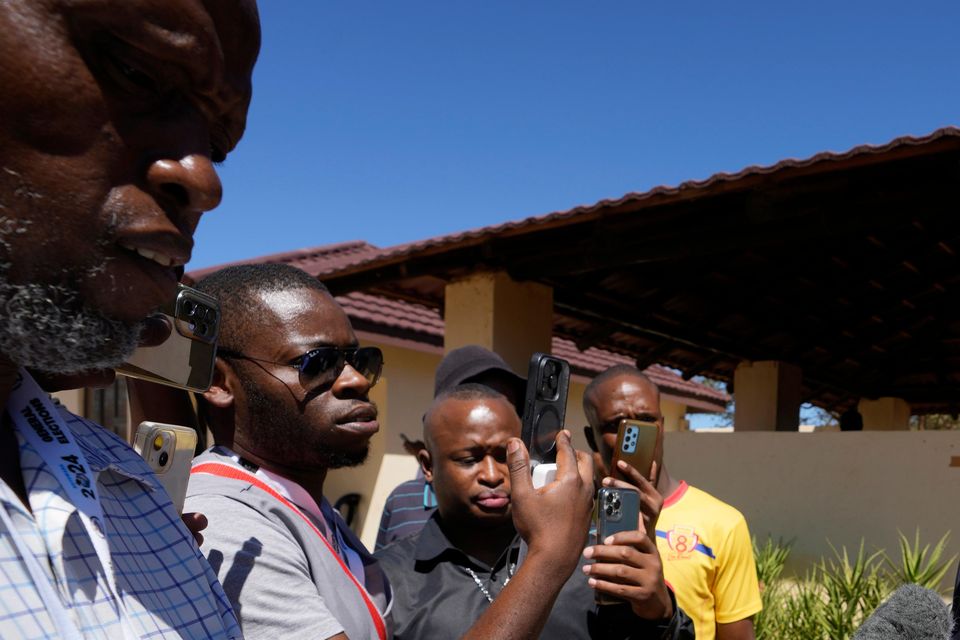Botswana President Mokgweetsi Masisi has conceded defeat in the general election, ending the ruling party’s 58 years in power since independence from Britain in 1966.
Mr Masisi’s concession on Friday came before final results were announced with his Botswana Democratic Party trailing in fourth place in the parliamentary elections.
The main opposition Umbrella for Democratic Change held a strong lead in the partial results, making its candidate Duma Boko the favourite to become president of a southern African country that is one of the world’s biggest producers of mined diamonds.
Umbrella for Democratic Change (UDC) presidential candidate Duma Boko speaks to journalist after casting his vote during the elections in Gaborone (Themba Hadebe/AP)
Mr Masisi said he had called Mr Boko to inform him he was conceding defeat.
“I concede the election,” Mr Masisi said in an early-morning press conference two days after the election. “I am proud of our democratic processes. Although I wanted a second term, I will respectfully step aside and participate in a smooth transition process.
“I look forward to attending the coming inauguration and cheering on my successor. He will enjoy my support.”
Mr Masisi’s BDP has dominated politics in Botswana for nearly six decades. The nation of just 2.5 million people will now be governed by another party for the first time in its democratic history.
Botswana has been held up as one of Africa’s most stable democracies with its economy largely relying on diamonds. It is the world’s second-biggest natural diamond producer behind Russia.
The mood for change was evident as a downturn in the global demand for diamonds badly hit Botswana’s economy with unemployment rising to more than 27% this year as the government saw a sharp decrease in revenue from diamonds.
Mr Masisi and his party had faced criticism for not having done enough to diversify the economy.
Mr Doko is a 54-year-old lawyer who also contested elections in 2014 and 2019.
